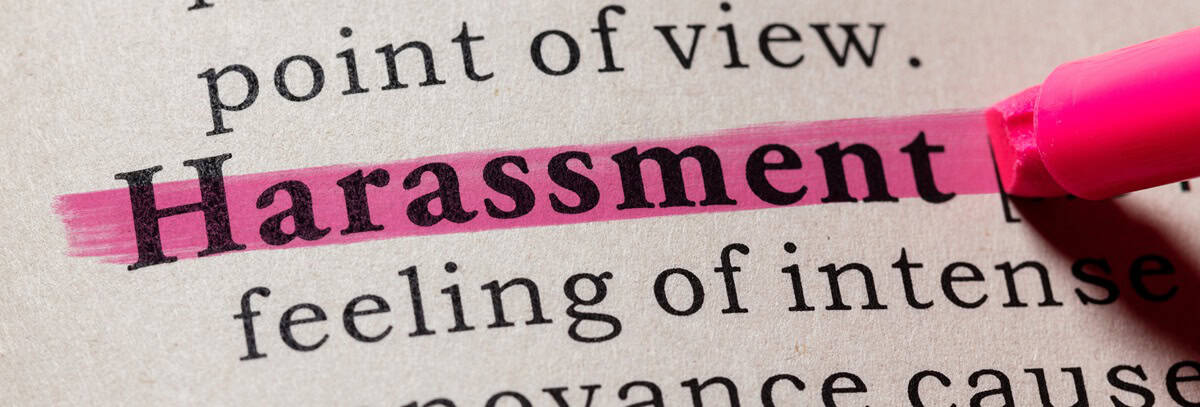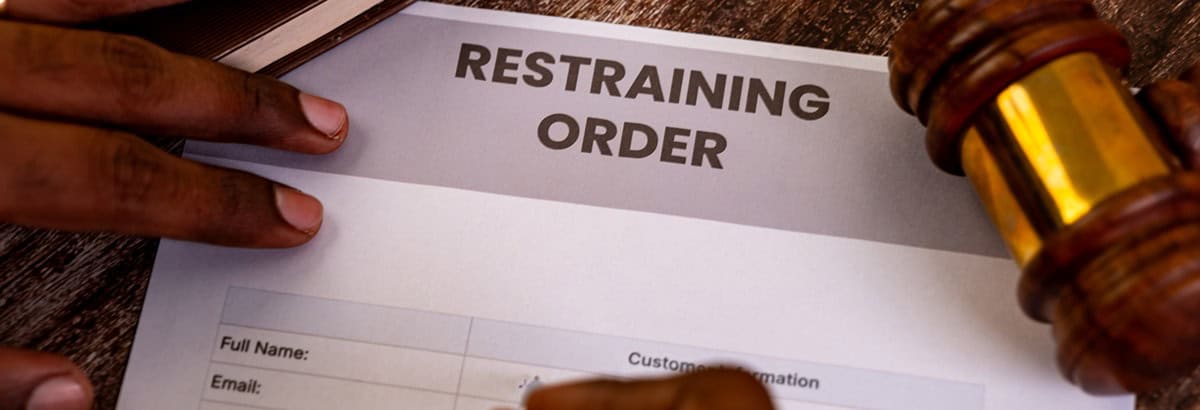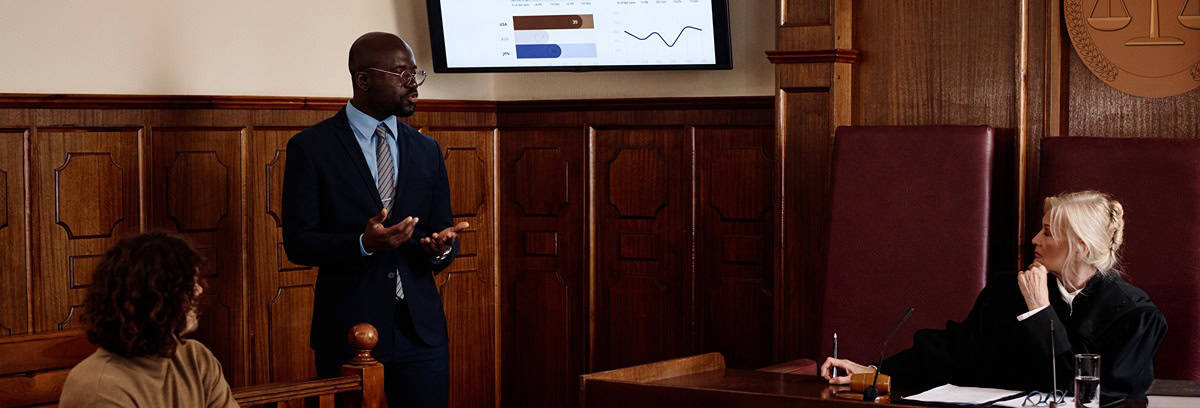Being accused of aggravated harassment in Arizona is a serious matter that can lead to felony charges, especially if there is a prior conviction for domestic violence. If you’re facing allegations of violating a protective order or repeated acts of harassment, it’s critical to understand the legal implications and what you’re up against. Arizona law treats aggravated harassment differently from simple harassment, and the consequences can include years in prison.
This article explains how Arizona defines aggravated harassment, what behaviors qualify, how the state charges these cases, and what potential defenses could apply. We’ll also review the penalties associated with aggravated harassment and how a Phoenix aggravated harassment attorney like Arja Shah can help protect your rights and build a strong defense.
This article will cover the following subtopics:
- How Arizona Law Defines Aggravated Harassment
- What Counts as Harassment in Arizona?
- Examples of Aggravated Harassment Charges
- Penalties for Aggravated Harassment in Arizona
- Common Defenses to Aggravated Harassment Charges
- 5 FAQs About Aggravated Harassment Cases
- Important Things to Remember
- How a Phoenix Aggravated Harassment Attorney Can Help
Whether you or a loved one has already been arrested for aggravated harassment or you’re worried you could be charged, this guide will give you a clearer picture of the law and your options.

How Arizona Law Defines Aggravated Harassment
Aggravated harassment in Arizona is addressed under ARS 13-2921.01, which builds upon the general harassment law in ARS 13-2921. While simple harassment is generally a misdemeanor, aggravated harassment is a felony in certain situations.
Under Arizona Revised Statutes §13-2921.01, a person commits aggravated harassment when:
- They commit harassment under ARS 13-2921, and
- They do so while an Order of Protection or Injunction Against Harassment is in effect against them, or
- They have a prior domestic violence conviction involving the same victim, which can escalate the situation into a case of aggravated harassment.
That means aggravated harassment is often tied to ongoing domestic violence situations or protective orders. The law aims to protect individuals at increased risk from someone they already have legal protection against.
Aggravated harassment is typically classified as a Class 5 felony, but under certain conditions, such as a prior felony conviction, the punishments for aggravated harassment may increase.
What Counts as Harassment in Arizona?
To understand aggravated harassment, we first need to understand what qualifies as harassment in Arizona under ARS 13-2921.
According to the statute, harassment occurs when a person intentionally commits a series of acts that harass, alarm, annoy, or cause substantial emotional distress to another person. These actions must serve no legitimate purpose.
Examples of acts that are considered harassment include:
- Repeated unwanted phone calls or text messages
- Following someone or showing up uninvited is a form of harassment that can lead to serious legal consequences.
- Sending harassing communication through social media
- Surveillance or stalking behavior
- Threats or intimidation
These actions may seem minor in isolation, but when they form a pattern of behavior—especially after an order of protection has been issued—they can lead to an aggravated harassment charge.
Examples of Aggravated Harassment Charges
Example 1: A case of aggravated harassment can involve multiple forms of harassment. A man is served with an Order of Protection by his ex-girlfriend due to prior threats and domestic disputes. Despite the court order, he continues to send her dozens of text messages per day. Even though he never threatens her directly, the repeated unwanted communication violates the protective order. He is arrested and charged with aggravated harassment.
Example 2: A woman has a prior domestic violence conviction involving her ex-husband. Months later, she repeatedly drives by his house and parks outside his workplace. He files a police report and provides surveillance footage. Based on the prior conviction and the alleged harassment, she is charged with a Class 5 felony. An aggravated harassment offense can have severe legal repercussions, including a Class 6 felony charge.
In both cases, the context (such as the existence of a protective order or a prior domestic violence conviction) escalates what might otherwise be a misdemeanor into a felony-level criminal case.
Penalties for Aggravated Harassment in Arizona
If you’ve been charged with aggravated harassment, you could face serious legal consequences. In Arizona, Aggravated harassment is always a felony, and it can lead to being accused of harassment. The penalties depend on your criminal history.
Here are the general classifications:
- Class 5 felony for a first-time aggravated harassment charge.
- If you have a prior felony conviction, harsher sentencing applies under Arizona’s repeat offender statutes.
- Probation, jail time, or prison may be imposed depending on the circumstances and severity of the alleged harassment.
A conviction for aggravated harassment can result in:
- Years in prison
- Loss of civil rights (e.g., voting, gun ownership)
- Difficulty securing employment or housing
- Restrictions on child custody or visitation
Common Defenses to Aggravated Harassment Charges
Not every aggravated harassment case is clear-cut. There are several fact-based defenses a skilled criminal defense attorney can use to challenge the charge:
- Lack of Intent – The prosecution must prove the accused intended to harass. If the conduct was accidental or misinterpreted, this defense can apply.
- No Valid Protective Order in Place—If the order of protection was invalid or expired at the time of the alleged act, the case may be dismissed.
- No Prior Domestic Violence Conviction – If the prosecution mistakenly alleges a prior domestic violence conviction, a lawyer can challenge the basis for the aggravated charge.
- Mistaken Identity—In some harassment cases, it may be unclear who sent messages or made contact. Digital forensics can sometimes prove that the accused was not involved.
- Legitimate Purpose – If the accused had a legal reason to contact the other person (e.g., co-parenting), it may not be considered harassment.
These defenses highlight the importance of having an experienced criminal defense attorney like Arja Shah on your side. She can investigate the facts and subpoena records, and expose weaknesses in the state’s case.
5 FAQs About Aggravated Harassment Cases
- Is aggravated harassment always charged as a felony in Arizona?
Yes. Under ARS 13-2921.01, aggravated harassment is always considered a felony. - Can I go to jail for a first-time aggravated harassment charge?
Yes. Even a first offense can result in a Class 5 felony conviction and prison time, depending on the case and whether a plea deal is reached. - What happens if I violate an Order of Protection accidentally?
Even accidental contact can lead to arrest. However, your defense attorney may be able to argue a lack of intent or improper service of the order. - Is text messaging someone considered harassment?
It can be, especially if it’s unwanted, repeated, and causes fear or distress—context matters. - How long does an aggravated harassment case take in Phoenix?
It depends. Some cases resolve quickly with a plea, while others may go to trial. A criminal case can take several months or longer.
Important Things to Remember
- Aggravated harassment is a Class 5 felony under Arizona law.
- A prior domestic violence conviction or a protective order is what escalates simple harassment to aggravated harassment.
- Text messages, social media, or physical presence can all qualify.
- The state must prove you acted intentionally and without a legitimate purpose.
- You have a right to defend yourself, especially with fact-based defenses.
How a Phoenix Aggravated Harassment Attorney Can Help
 If you’re facing aggravated harassment charges in Phoenix, don’t wait to seek legal help. Attorney Arja Shah of Shah Law Firm brings nearly 20 years of experience and over 3,000 successful criminal defense cases to your side. She has built strong relationships with prosecutors and courts across Maricopa County and knows how to fight for favorable outcomes in harassment cases.
If you’re facing aggravated harassment charges in Phoenix, don’t wait to seek legal help. Attorney Arja Shah of Shah Law Firm brings nearly 20 years of experience and over 3,000 successful criminal defense cases to your side. She has built strong relationships with prosecutors and courts across Maricopa County and knows how to fight for favorable outcomes in harassment cases.
Whether you’re dealing with a first-time aggravated harassment charge or have a prior felony conviction, Arja Shah will assess your case, explain your options, and help protect your future. From challenging the legality of a protective order to exposing weaknesses in the State’s evidence, the Shah Law Firm can make a crucial difference in your criminal case.
Call (602) 560-7408 or complete the free consultation form. You don’t have to face these charges alone—get an experienced Phoenix aggravated harassment lawyer on your side today.







